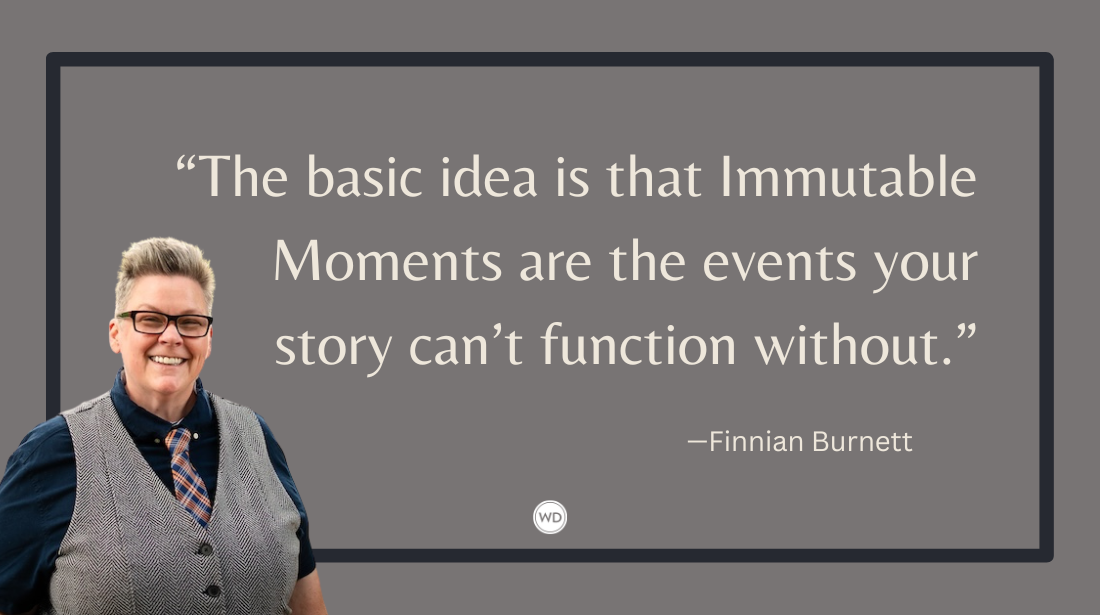6 Tips for Developing an Exciting Fantasy Adventure Premise
Feeling overwhelmed with putting together your fantasy fiction novel? Author Marshall Ryan Maresca comes to the rescue with 6 tips for developing an exciting fantasy adventure premise.
Every fantasy fan has had their imaginations ignited by the wide possibilities of adventure in some distant, magical world. More often than not, once that seed is there, it will grow into a desire to build your own world, find your own heroes, and dive into your own fantasy adventure. I know when it came to writing my novels, including the latest, An Unintended Voyage, I was driven to create something exciting and powerful that would get readers to fall in love with the world and characters as much as I had.
You want to get writing your epic fantasy? Well, the best way to do that is by asking yourself six simple questions.
Where?
First and foremost, you’ve got to build the world your story takes place in. Strong world-building is the critical foundation of a fantasy adventure. However, don’t mistake “strong” for “a lot.” Now, I’m actually a huge fan of doing “a lot” when it comes to world-building, but that’s because it’s a process I deeply enjoy. So how much world-building should you do?
The best answer I have is that you need to do just enough to fill beyond the lines of your story. You need enough that you know the answers to the obvious questions about your world that will come up when someone reads your stories, even if you never need to answer them in the story itself.
And—this is very critical for a fantasy adventure—you will be astounded by how much you do not need to explain about your world. How much putting the world-building on the page is about giving the reader just enough that they can fill the negative space with the details you suggest.
Who?
Your world needs people, and most specifically, your story needs a protagonist (or a set of them). And most likely, also an antagonist. I try to avoid terms like “hero” and “villain,” let alone “good” and “evil,” in no small part due to the fact that, for me, the most interesting pairings of protagonists and antagonists are ones who simply want things that are in opposition to each other. The conflict might have grand or even global stakes, but if the motivations are simple and personal to each of them, then that’s going to make the whole story far more engaging.
Now, there is a school of thought that a fantasy adventure protagonist has to be an “active” character. I’m not sure I entirely agree with that, though I do think a strong protagonist is one that makes choices throughout the story. The more important thing is a protagonist who needs something, even if that thing is just to be left alone long enough to get a decent night’s sleep. The antagonist can simply be in opposition of those needs. And the most interesting antagonists are ones that have good reasons for that opposition, who see themselves as the hero of their own story. So, ideally, even if in the end it comes down to a final battle, you don’t want your protagonist and antagonist to be in a fight throughout the story, but an argument, where they both think they’re right.
When?
By which I mean: now. I’m not talking about the time that the story takes place, but about the sense that you are focused on the now of the story. If your protagonist’s adventure starts in their 20s, we don’t need to start the story in their childhood. We don’t need to start with a hundred or a thousand years ago, we don’t need to know the ancient lore, unless and until it is relevant to the story happening now. Fill your story with immediacy and urgency, and with that, the pages will keep turning.
What?
This is the dreaded part about plot. I’m a big fan of outlining and plot structure, but they’re by no means the best and only way to write a good plot. And plot can be boiled down to simply what happens, and you’ll want it to be a matter of choices and consequences, regardless of which characters are making the choices.
The simplest way to make a strong plot is to look at the reasons for the next complication to happen. Does it come from a choice? What is the consequence of that choice? How do your characters react to that consequence, and how does that lead them to their next opportunity to make a choice? And for you, as the writer, what choice can you have them make (that stays in character) that creates the most interesting consequences? Especially if well-meaning choices made for the right reasons lead to disastrous consequences.
IndieBound | Bookshop | Amazon
[WD uses affiliate links.]
Why?
As I said when talking about giving your protagonist something they need, the story needs to have stakes. The stakes in question can be small and deeply personal, or epic and world-shattering, but whatever it is, the stakes need to matter to the characters involved. Failing needs to matter.
Your characters need to be invested in not only why they should be involved, but more importantly, why it has to be them. If someone else could do it, if someone else should do it, if not doing it won’t cost your characters anything … then how will they care about what happens? And if your characters don’t care, how can you expect the readers to?
How?
By putting yourself in front of your screen, or notepad, or giant whiteboard, or whatever you are going to write on, and getting to work. So, get to it. You’ve got this.
Marshall Ryan Maresca is a fantasy and science fiction writer, author of the Maradaine Saga: four braided series set amid the bustling streets and crime-ridden districts of the exotic city called Maradaine, which includes The Thorn of Dentonhill, A Murder of Mages, The Holver Alley Crew, and The Way of the Shield. He is also the author of the upcoming Velocity of Revolution, and has been a playwright, an actor, a delivery driver, and an amateur chef.








